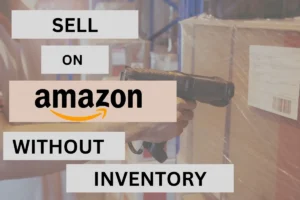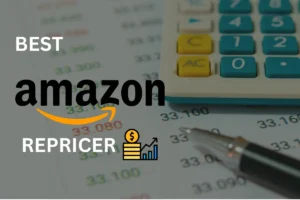In the world of e-commerce, sellers are always on the lookout for avenues to boost their profit margins. Amid the digital hustle, online arbitrage has emerged as an enticing business model.
But, with its growing popularity, there’s a pressing question lurking in the minds of many: Is online arbitrage legal?
In its simplest form, online arbitrage involves buying products from online stores at a lower price and then reselling them on different platforms at a higher price.
The difference in selling price and acquisition cost, minus the various expenses like referral fees and shipping costs, leads to potential profit. But where does legality come into the picture? Let’s delve deep.
The Appeal of Online Arbitrage
The appeal of online arbitrage stems from its simplicity. Unlike retail arbitrage, where you buy products from brick-and-mortar stores to sell them online, this model entirely revolves around online platforms.
Sellers use online arbitrage tools to track the price history of products, ensuring they buy when the price dips and sell when it peaks, thus capitalizing on the price difference.
This strategy, combined with the convenience of not visiting physical retail stores, makes it a lucrative business model for many.
The Legal Perspective
At its core, buying a product and selling it at a higher price is a fundamental business practice. However, when it comes to online arbitrage, certain nuances can raise eyebrows.
Brands and Private Labels
Selling private label or branded products without authorization can land you in hot water. Many brands have strict policies about who can sell their products.
Not being an authorized seller can lead to complaints against sellers, affecting your seller rating or even leading to legal actions.
These products are usually protected by intellectual property laws and copyright laws, and any attempt to resell them can be seen as a violation of these rules, which can lead to an IP Claim. As a seller, knowing the exact status of the products you buy is important.
An IP (Intellectual Property) claim refers to a formal assertion by an individual or entity stating that someone else is using their intellectual property without permission.
In the context of online marketplaces like Amazon, Walmart, or other e-commerce platforms, an IP claim typically means that a seller is being accused of selling products that infringe on someone else’s intellectual property rights. These rights can be related to trademarks, patents, copyrights, or trade secrets.
Online Arbitrage sellers are usually victims of IP claims, so if you will be going into this business model, you need to be careful of these intellectual property products.
A tool like the Ecom Circles Extension has features like the IP claim checker that lets you know if an item is at risk of an IP Claim before you list it.
The Legality Quandary of Branded Packaging in Online Arbitrage
One of the gray areas in the online arbitrage business model revolves around the issue of branded packaging.
Marketplaces such as Amazon and Walmart prioritize the buyer’s experience, and a significant part of that experience is the unboxing.
Imagine a customer’s confusion and potential distrust when they purchase a product on Amazon only to receive it in a Walmart or Best Buy package.
This misalignment not only disrupts the customer’s expected experience but also raises questions about the product’s authenticity and source.
From a legal standpoint, such practices can be seen as deceptive or misleading, potentially violating marketplace policies.
These platforms have stringent rules to maintain trust with their customers, and violating these can result in severe consequences. Sellers found indulging in such practices often face account suspensions or even bans.
For online arbitrage sellers, it’s crucial to be acutely aware of these potential pitfalls and consider strategies, like repackaging, to ensure they don’t inadvertently violate marketplace guidelines.
Counterfeit Products
It’s essential to ensure that you’re not dealing with counterfeit products. Selling counterfeit or fake products can lead to severe penalties, negative reviews, and even account suspension on platforms like Amazon.
Diving into the online arbitrage world comes with its fair share of risks, and one of the most menacing is the trap of counterfeit products.
Not only do these imitation items tarnish the trust and credibility you’ve built with your customers, but they can also land you in legal hot water.
Platforms like Amazon have stringent policies and mechanisms in place to detect and penalize sellers pushing counterfeit goods.
Beyond the immediate consequences like account suspension, selling fake products can harm your reputation irreparably.
It’s imperative to have robust verification processes to authenticate the products you source, ensuring that your online arbitrage business remains legitimate, trustworthy, and far from any legal repercussions.
Embracing the 2-Step Dropshipping Model for Legal Safety
If you’re an online arbitrage seller, navigating the intricacies of branded packaging can be a challenging endeavor.
But there’s a solution you might not have considered: the 2-step dropshipping model.
At its core, this approach is designed to safeguard your business from potential marketplace violations tied to branded packaging.
Instead of directly sending your customer a product in another retailer’s branded box, the 2-step model adds an intermediate step that can make all the difference.
You send the product to a warehouse first, where it’s repackaged in an unbranded box before being dispatched to the buyer.
By employing this method, you ensure that the buyer receives their purchase in a neutral, unbranded package, eliminating any confusion or doubts about the product’s source.
This not only enhances the buyer’s unboxing experience but also significantly reduces the risk of violating marketplace policies. Remember, marketplaces prioritize the buyer’s experience, and receiving products in mismatched packaging can raise red flags.
By integrating the 2-step dropshipping approach into your online arbitrage business, you’re taking a proactive stance. It’s a strategic move that can shield you from potential legal challenges, safeguard your seller reputation, and ensure the longevity of your online arbitrage venture.
Adopting such strategies showcases your commitment to best practices and can be the difference between a thriving business and one that faces constant marketplace scrutiny.
Conclusion
Online arbitrage, in its essence, isn’t illegal. However, the way one conducts this business can sometimes skirt the lines of legality.
Being informed, staying updated, and practicing due diligence are the keys to ensuring your online arbitrage business thrives without legal hiccups.
So, if you’re considering diving into this world, arm yourself with knowledge and tools, and you’ll be well on your way to leveraging those profitable deals.
And always remember, while the allure of quick profits is tempting, building a sustainable, ethical online business will always yield long-term rewards.






